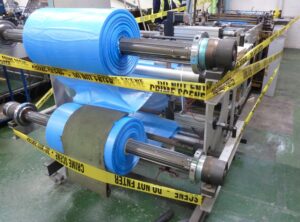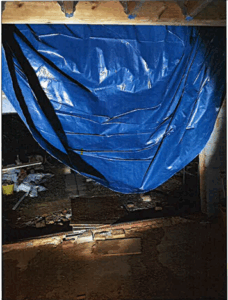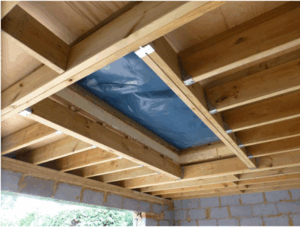Isle of Wight farm owner hit with fine after disease outbreak infects hundreds of visitors
- More than 200 people infected with disease.
- Victims’ described experience as ‘the worst diarrhoea and vomiting ever they had ever had’
- Extensive HSE and industry guidance is available.
A farm owner on the Isle of Wight has been fined £8,000 after an outbreak of resulted in 264 people being infected with Cryptosporidium – a zoonotic disease.
Sharon Wheeler, 60, ran an animal bottle feeding activity at a petting farm at Hazelgrove Farm in Ryde in April and May 2023. This activity infected more than 30 per cent of attendees with the highly infectious illness, cryptosporidiosis, more than half of those were children.
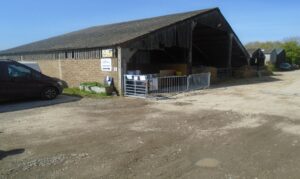
Cryptosporidium is a form of zoonotic parasite (a tiny organism) that causes an illness called cryptosporidiosis affecting people and some animals, particularly farm animals. Symptoms in people can include abdominal cramps, diarrhoea, and nausea.
The Hazelgrove Farm outbreak was declared following reports of gastrointestinal illness among visitors who had attended the animal bottle feeding activity, where visitors could purchase a bottle of milk to feed to a lamb or goat kid.
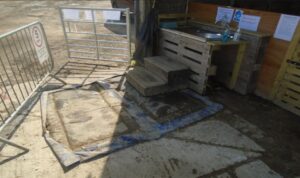
A joint investigation by the Health and Safety Executive (HSE) and the UK Health Security Agency (UKHSA) traced the infections back to the farm, identifying that approximately 2,400 tickets were sold between 4 April to 1 May 2023 for animal feeding event.
The investigation established failings in the way the animal feeding activity was run, including:
- Failure to properly assess the risks to workers and visitors.
- Inadequate washing and drying facilities (reusable cloth towels should not be used).
- Insufficient information and instruction to employees and visitors (visitors were not given sufficient information about zoonotic risk and controls).
- Inadequate control and supervision of visitor contact with animals (children were observed kissing both goats and lambs which were visibly contaminated with faecal matter).
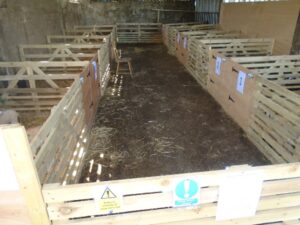
As a result, 264 attendees suffered some form of symptoms, however, five per cent of cases were admitted for overnight hospital stays due to prolonged or severe symptoms, including children.
Many adults had to take time off work and school, amounting to 1,254 lost days, because of illness or caring responsibilities. Several victims have reported continuing gastrointestinal issues affecting their day to day lives since attending the event, with some having multiple hospital stays over 2024. Victims’ state that their experiences were among the worst diarrhoea and vomiting they had ever had, fearing for their children’s health, leaving lasting aftereffects and putting their families off ever visiting farm animals again.
In his judgement, District Judge Galloway, summarising the victims statements, said: “There is no doubt that that the events to which they refer are and were serious” and reflected on the victims “psychological toll experienced, and PTSD” and “the fact that the illness was life threatening “and “the fear that a child affected would not recover”.

Sharon Wheeler or Hazelgrove farm, Ryde, Isle of Wight, pleaded guilty to breaching Section 3(2) of the Health and Safety at Work etc. Act 1974. She was fined £8,000 and ordered to pay costs of £9,528.35 in costs at a hearing at Southampton Magistrate’s court on 11 November 2025.
Speaking after the hearing HSE inspector Francesca Arnold said: “It is extremely important that farmers understand the risks on their farm, and they should ensure that visitors are protected when inviting the public onto their farms.
“Health risks from contact with the animals need attention and must be controlled. If the zoonotic risks had been properly controlled this incident could have been avoided, but the failures during the animal feeding activity meant a large number of visitors became ill and some suffered lasting effects.
“As with most activities, visits to farms and farm attractions can never be considered free from risk. However, it is possible to reduce the levels of risk by implementing control measures and safe practices to ensure that workers and members of the public are not put at risk and still provide a valuable and enjoyable recreational and educational experience.”
All animals naturally carry a range of microorganisms, some of which can be transmitted to humans. Diseases passed from animals to humans are known as zoonoses. Some zoonotic diseases are more serious than others. Young children and those with deficient immune systems are amongst those more likely to suffer serious effects from zoonotic disease. Some zoonotic diseases can potentially be life-threatening. Those operating animal visitor attractions have a legal duty to assess the risk and put in place suitable control measures.
While the risk of contracting a zoonotic disease is generally considered to be low, such risk may be significantly increased without adequate control measures being in place.
Only small numbers of cryptosporidium are required to become ill, and it is capable of surviving for a long time in the environment. People can become infected by consuming contaminated food or drink or by direct contact with contaminated animals. Infection can also occur when people come into contact with animal faeces or saliva, even in very small amounts, such as by touching or kissing infected animals, during bottle-feeding, or touching contaminated fences and other items such as contaminated cloth towels. Good control measures, including handwashing with soap and water are therefore essential.
Industry guidance to assist dutyholders to control zoonotic risk to farm visitors is freely available from the Access to Farms website. The HSE was consulted in the production of the Industry Code of Practice (ICOP) “Preventing or Controlling Ill Health from Animal Contact at Visitor Attractions”.
The ICOP provides sensible, proportionate and balanced advice to farms on how to comply with health and safety law and keep visitors safe and well, including the reasonably practicable measures available to reduce the risk of exposure to micro-organisms and a useful checklist for farmers to use.
This prosecution was brought by HSE enforcement lawyers Robert James and Kate Harney and paralegal officer Stephen Grabe.
Further information:
- The Health and Safety Executive (HSE) is Britain’s national regulator for workplace health and safety. We are dedicated to protecting people and places, and helping everyone lead safer and healthier lives.
- More information about the legislation referred to in this case is available.
- Further details on the latest HSE news releases is available.
- Zoonoses are diseases caused by micro-organisms that can be transmitted from animals to humans, these illnesses include those resulting from infection with the organisms Escherichia coli O157(E coli O157) and Cryptosporidium parvum.
- Relevant guidance can be found here Preventing or controlling ill health from animal contact at visitor attractions or open farms – HSE and Industry Code of Practice | Access To Farms and Cryptosporidium: public advice – GOV.UK.
- HSE does not pass sentences, set guidelines or collect any fines imposed. Relevant sentencing guidelines must be followed unless the court is satisfied that it would be contrary to the interests of justice to do so. The sentencing guidelines for health and safety offences can be found here.
